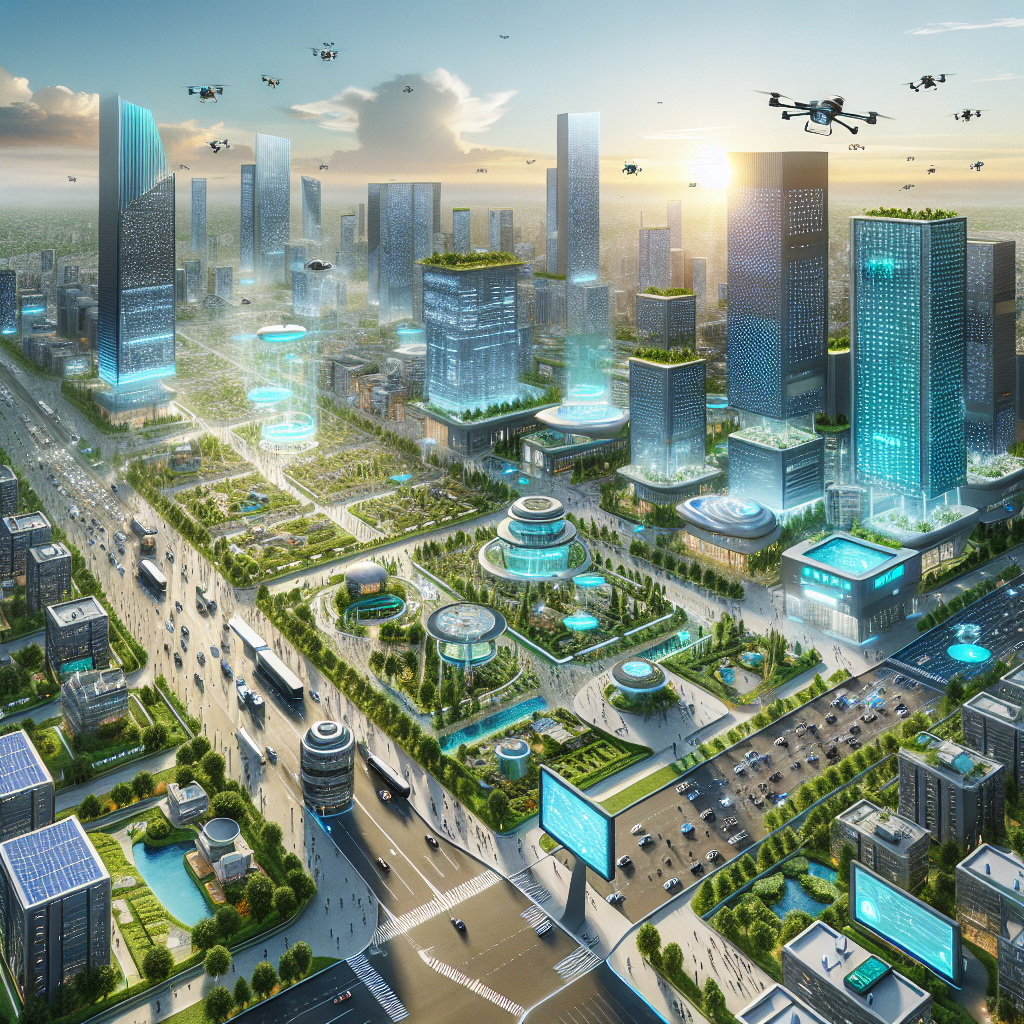Membangun kota masa depan dengan teknologi untuk menciptakan Smart Cities yang efisien, berkelanjutan, dan nyaman bagi penduduknya.
Smart Cities: Membangun Kota Masa Depan dengan Teknologi
-
Table of Contents
- Introduction
- The Concept of Smart Cities
- Benefits of Smart Cities
- Challenges in Building Smart Cities in Indonesia
- Infrastructure Limitations
- Data Privacy and Security
- Financial Constraints
- Solutions for Building Smart Cities in Indonesia
- Collaboration and Partnerships
- Policy and Regulatory Framework
- Capacity Building and Education
- Conclusion
Introduction

Smart cities are the future of urban development, and Indonesia is no exception. With rapid urbanization and technological advancements, the concept of smart cities has gained significant attention in recent years. This article explores the idea of smart cities in Indonesia, discussing the benefits, challenges, and potential solutions for building a technologically advanced urban environment.
The Concept of Smart Cities
A smart city is an urban area that utilizes technology and data to enhance the quality of life for its residents, improve sustainability, and optimize resource management. It involves the integration of various digital technologies, such as the Internet of Things (IoT), artificial intelligence (AI), and big data analytics, to create a connected and efficient urban ecosystem.
Benefits of Smart Cities
Implementing smart city initiatives in Indonesia can bring numerous benefits to both the government and its citizens. Some of the key advantages include:
1. Improved Infrastructure: Smart cities leverage technology to enhance infrastructure, including transportation systems, energy grids, and waste management. This leads to better connectivity, reduced congestion, and optimized resource allocation.
2. Enhanced Quality of Life: Smart cities prioritize the well-being of their residents by providing efficient public services, such as smart healthcare, education, and public safety systems. This improves the overall quality of life and ensures a sustainable and inclusive environment.
3. Economic Growth: Smart cities attract investments and foster innovation, leading to economic growth and job creation. By leveraging technology and data, cities can optimize business processes, attract startups, and promote entrepreneurship.
4. Environmental Sustainability: Smart cities focus on reducing their carbon footprint by implementing sustainable practices. This includes energy-efficient buildings, smart grids, waste management systems, and promoting green transportation options. By adopting these measures, cities can contribute to a cleaner and greener future.
Challenges in Building Smart Cities in Indonesia
While the concept of smart cities holds immense potential, there are several challenges that need to be addressed for successful implementation in Indonesia.
Infrastructure Limitations
One of the primary challenges is the existing infrastructure limitations in many Indonesian cities. Inadequate connectivity, outdated transportation systems, and limited access to basic amenities pose significant hurdles in building smart cities. Upgrading infrastructure and ensuring widespread access to high-speed internet are crucial steps in overcoming these challenges.
Data Privacy and Security
As smart cities rely heavily on data collection and analysis, ensuring data privacy and security is of utmost importance. Protecting citizens’ personal information and preventing unauthorized access to sensitive data is a critical challenge that needs to be addressed through robust cybersecurity measures and strict regulations.
Financial Constraints
Implementing smart city initiatives requires substantial investments in technology infrastructure, research and development, and capacity building. Financial constraints can hinder the progress of smart city projects, making it essential for the government to explore public-private partnerships and secure funding from international organizations to overcome this challenge.
Solutions for Building Smart Cities in Indonesia
To overcome the challenges and build smart cities in Indonesia, several solutions can be implemented:
Collaboration and Partnerships
The government should collaborate with technology companies, research institutions, and international organizations to leverage their expertise and resources. Public-private partnerships can help in sharing the financial burden and accelerating the implementation of smart city projects.
Policy and Regulatory Framework
Establishing a comprehensive policy and regulatory framework is crucial for the successful implementation of smart city initiatives. This framework should address data privacy, cybersecurity, infrastructure development, and funding mechanisms. It should also encourage innovation and provide incentives for businesses and startups to contribute to the smart city ecosystem.
Capacity Building and Education
Investing in capacity building and education is essential to equip the workforce with the necessary skills to develop and maintain smart city infrastructure. Training programs, workshops, and educational initiatives should be introduced to foster a culture of innovation and technological literacy.
Conclusion
Smart cities have the potential to transform urban living in Indonesia by leveraging technology and data to create sustainable, efficient, and inclusive urban environments. While challenges such as infrastructure limitations, data privacy, and financial constraints exist, collaborative efforts, robust policies, and investments in capacity building can overcome these hurdles. By embracing the concept of smart cities, Indonesia can pave the way for a brighter future, where technology and innovation drive progress and improve the lives of its citizens.







